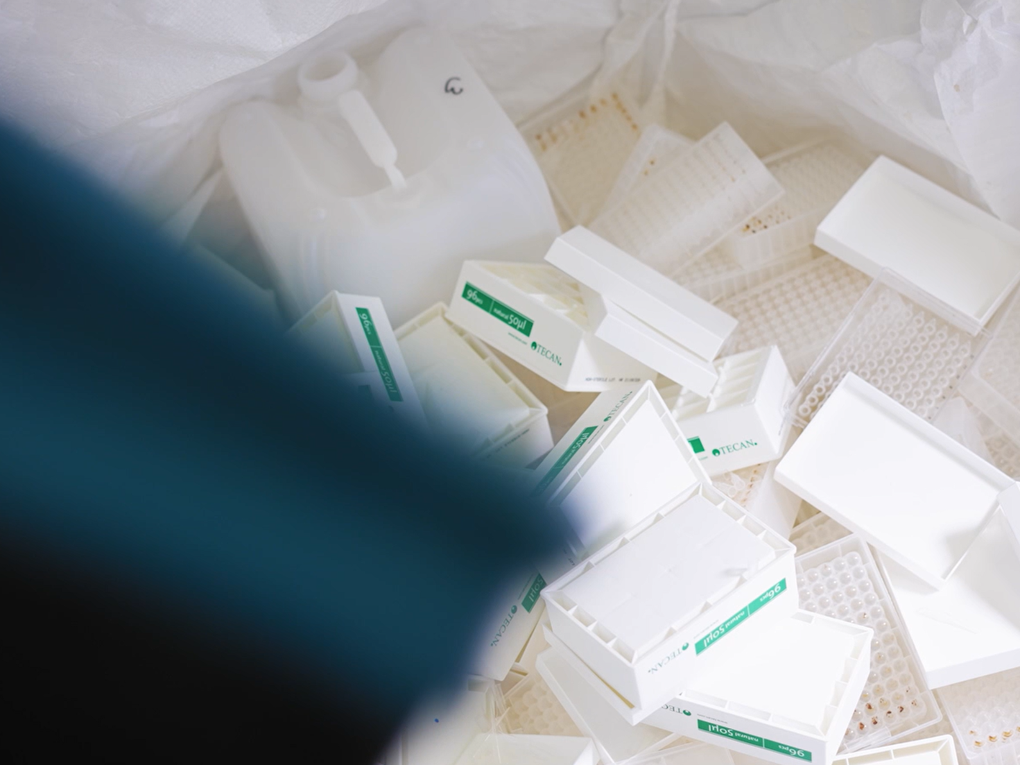
Advancing Sustainability: Step by Step to a Greener Future
Recognizing the urgent need to reduce waste, particularly plastic waste, we have embarked on an innovative sustainability project. In collaboration with Moritz Mischke, a TU Dresden student majoring in industrial engineering, we have taken up the challenge to reduce our environmental footprint on a scientific basis.
Understanding the Challenge: Waste Analysis and Reduction
The primary goal of this project was to reduce waste production by thoroughly analyzing our current waste management practices. Waste reduction would only possible if we understood exactly what types of waste we were producing, and which work steps could be optimized.
A comprehensive analysis revealed that our laboratory produced a significant amount of single-use plastic waste - approximately 16 grams per sample - which accumulates to about 16 tons of plastic waste annually due to our high sample throughput. Despite the essential nature of many plastic items in maintaining stringent laboratory standards, it became evident that waste disposal practices could be improved.
From Biodegradables to Recycling: A Strategic Shift
Initial ideas, such as replacing plastic components with biodegradable alternatives, proved to be suboptimal. Instead, we shifted our focus towards recycling - specifically transforming plastic waste into reusable polymers.
One of the key challenges in recycling is the diversity of plastic types. It's astounding how many different categories of plastic waste there are. Not all plastics can be mixed together without compromising material quality. To address this, we implemented a careful separation system of recyclable materials, starting with polypropylene (PP) light plastics, which are now collected separately and sent for recycling. This strategy has already yielded promising results, allowing us to successfully recycle 4 tons of plastic annually that would otherwise have been discarded.
Looking Ahead: Expanding Our Recycling Efforts
Building on this success, we have successfully expanded our recycling program to include dark PP and PS plastics, marking an important step forward in broadening the impact of our recycling program. This project is not only a milestone in waste reduction but also serves as a model for implementing scientifically driven methods in environmental sustainability within the medical laboratory sector.
A Sustainable Partnership for the Future
Our collaboration with TU Dresden has been highly successful, demonstrating that scientific innovation and environmental responsibility can go hand in hand. With this project we have achieved significant reductions in plastic waste and set a precedent for future environmental initiatives.
Our commitment to continuous improvement drives the lab to advance sustainability, creating a lasting positive impact on both healthcare and the environment.